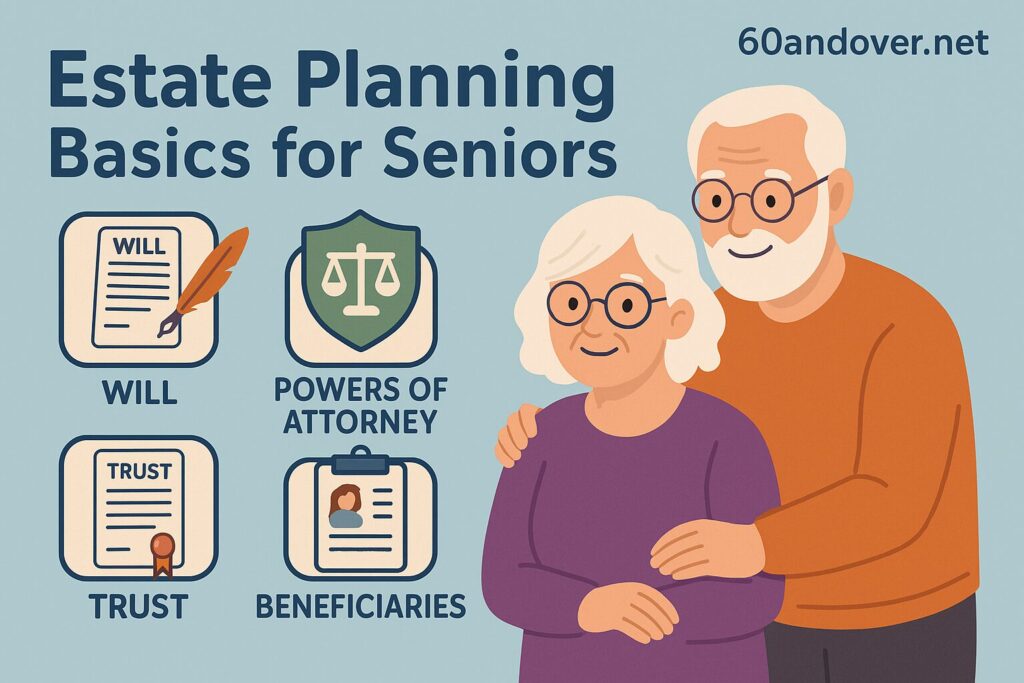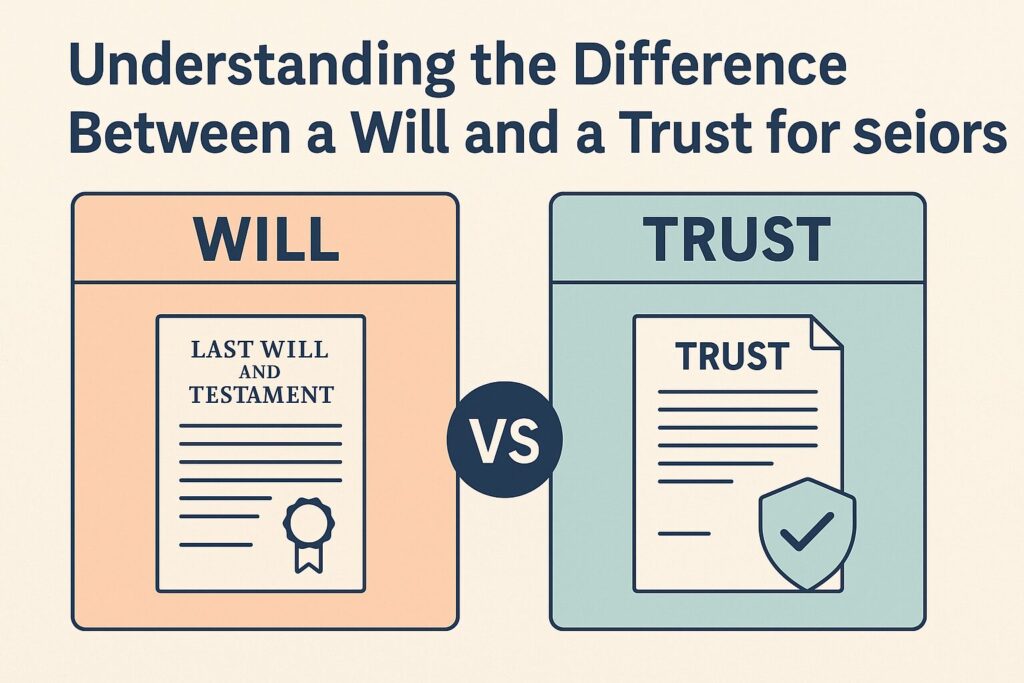When you’re over 60, thinking about estate planning may not feel easy, but it’s one of the most caring and responsible things you can do for yourself and your family. Estate planning isn’t just about what happens after you’re gone—it’s about giving yourself peace of mind right now, knowing your wishes will be honored, and your loved ones protected.
This guide will walk you through the basics of estate planning for seniors, breaking it down into clear, simple steps, without overwhelming you. Let’s get started!
Why Estate Planning Matters (and Why It’s Not Just for the Wealthy)
Many people think estate planning is only for people with huge amounts of money or complicated finances. But that’s simply not true. Every senior—no matter their income level—needs an estate plan.
Here’s why:
- Avoid Family Conflicts: Clearly laying out your wishes prevents confusion and arguments among your loved ones.
- Save Money: Good estate planning can reduce taxes and minimize costs.
- Protect Your Legacy: Ensure that what you leave behind goes exactly where you want.
- Peace of Mind: It’s a comfort to know your family won’t be left guessing during an already difficult time.
Essential Documents Every Senior Needs
Estate planning doesn’t have to be complicated. Here’s what you need to have in place:
1. Last Will and Testament
Your will details exactly who gets your possessions and assets when you pass away. Without one, state law—not you—decides what happens. Your will also lets you choose an executor to manage your estate.
Quick tip: Make sure your will clearly lists specific items, such as heirlooms or special belongings, to prevent family disagreements.
2. Durable Power of Attorney
A durable power of attorney lets you choose someone you trust (often a spouse or adult child) to manage your financial affairs if you become unable to do so. They can pay bills, manage investments, and handle legal issues on your behalf.
Quick tip: Make sure this person understands your finances and knows where to find your important documents.
3. Healthcare Power of Attorney (Medical Proxy)
This allows someone you trust to make medical decisions if you can’t communicate your wishes yourself. It’s important to choose someone you trust deeply, and who understands your personal wishes and values.
Quick tip: Have an open conversation with this person about your preferences in various health scenarios.
4. Living Will (Advance Directive)
This document clearly states your wishes about end-of-life medical treatment. Do you want life-sustaining measures? Organ donation? Hospice care? A living will makes these decisions clear, reducing stress for your loved ones.
Quick tip: Give copies of your living will to your doctor, family, and medical proxy.
5. Beneficiary Forms
For accounts like retirement savings, life insurance, or pensions, your beneficiary forms determine who inherits these funds—not your will. Regularly update these forms to reflect your current wishes.
Quick tip: Review beneficiary designations yearly or after major life events.
Trusts: When Should Seniors Consider One?
A trust isn’t just for the wealthy; it’s a flexible tool to handle your assets. A trust allows assets to pass directly to your beneficiaries, avoiding probate—the legal process that can be slow and costly.
Common types of trusts seniors use include:
- Revocable Living Trust: You can make changes anytime. It’s often used to avoid probate and protect privacy.
- Irrevocable Trust: Cannot be changed once created. It’s often used for tax or Medicaid planning.
If you own property or have considerable assets, a trust can simplify things significantly for your family later.
Avoiding Common Estate Planning Mistakes
Estate planning isn’t hard—but there are common mistakes to watch out for:
- Not Updating Regularly: Life changes! Update your estate plan every few years or after major events (marriage, divorce, birth of grandchildren).
- Not Informing Your Family: Secrets and surprises can lead to confusion. Talk openly about your estate plans to set expectations.
- Ignoring Digital Assets: Don’t forget online accounts and passwords. Make sure someone you trust knows how to access these.
Keeping Your Documents Safe and Accessible
Your estate planning documents won’t help if nobody can find them. Keep originals safe (like in a fireproof safe or bank safe deposit box), and make sure your executor or a trusted family member knows exactly where they are.
Also, consider creating a clear, easy-to-find list of your documents and accounts, including your attorney’s contact information and digital passwords.
Choosing the Right Professional Help
You don’t have to do all of this alone. Estate planning attorneys can provide advice tailored to your exact situation. Choose someone experienced, patient, and respectful. You should feel comfortable asking questions, no matter how simple.
Quick tip: Look for attorneys specializing in estate planning or elder law. Many offer a free initial consultation.
How Often Should You Review Your Estate Plan?
Ideally, review your estate plan every 3–5 years, or sooner if:
- You move to another state
- There’s a birth or death in the family
- You experience significant financial changes (retirement, inheritance, etc.)
- Your relationship status changes (marriage, divorce)
Frequently Asked Questions About Estate Planning for Seniors
Q: Can’t I just write my wishes down informally?
A: Informal notes may help guide family, but legally binding documents are essential to ensure your wishes are honored by the courts.
Q: Is estate planning expensive?
A: It doesn’t have to be. Simple estate plans are affordable, especially compared to costs your family might face later without one.
Q: Can I do estate planning myself online?
A: Online tools can be useful for simple wills, but consulting an attorney is wise for more complicated assets or family situations.
Final Thoughts: Your Plan, Your Peace of Mind
Estate planning might feel overwhelming, but taking action is empowering. A little planning now can provide tremendous comfort later—not just for you, but for everyone you love.
It’s not just paperwork; it’s about clearly communicating your love, your wishes, and your values. Don’t put it off. Your family—and your future self—will thank you.
For more senior-friendly financial guidance, read our comprehensive guide on Smart Money Moves After 60: A Guide to Financial Security and Peace of Mind.





